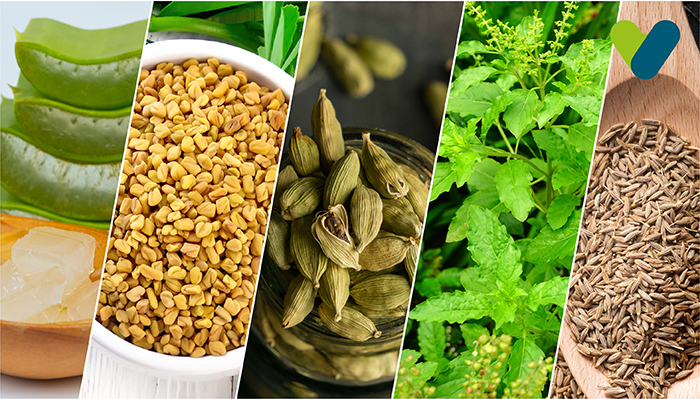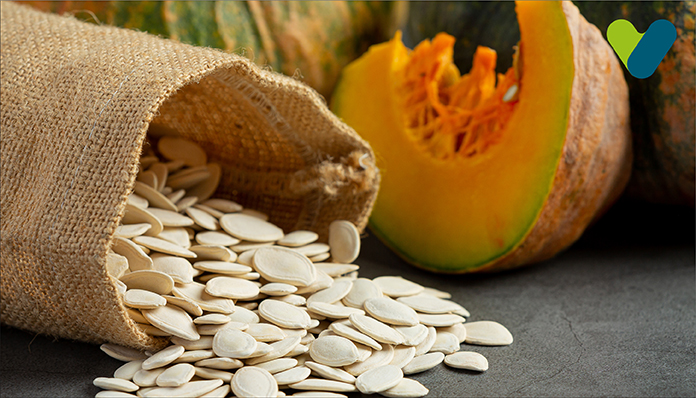Herbs have a variety of health-promoting properties. They can not only help you add flavour to your dish, but they can also help you enhance your health. The nice part is that you can either eat them or use them into your beauty routine. Furthermore, some plants are particularly beneficial to women.
9 Best Herbs for Women
- Ashwagandha: The tiny woody herb Ashwagandha (Withania somnifera) is native to India and North Africa. Its root and berries are used to make an Ayurvedic medicine that is highly popular. It's classified as an adaptogen, which means it's thought to assist your body better manage stress. It has been found in studies to lower cortisol levels, a hormone produced by your adrenal glands in response to stress. There's also evidence that ashwagandha helps patients with stress and anxiety disorders sleep better and feel less anxious.
- Brahmi: Brahmi is the herb to use if you want to improve your memory and mental abilities. It removes toxins from the neural system and can aid in the treatment of depression, boost IQ, and improve focus and memory. Brahmi is an Ayurvedic herb that is said to help with inflammation, brain function, and ADHD symptoms. It may also boost your body's stress-resistance, however additional research is needed.
- Cumin: Cumin is a Mediterranean and Southwest Asian spice with a long history. It's manufactured from the seeds of the Cuminum cyminum plant, which have a unique earthy, nutty, and spicy flavour. Cumin has been shown to increase the activity of digestive enzymes and accelerate the flow of bile from the liver, resulting in faster digestion and easier fat digestion. Cumin is beneficial to the digestive system as well as the metabolism. Cumin is known to cleanse the reproductive organs as well as enhance milk secretion, making it ideal for new mothers.
- Turmeric: Turmeric is a spice that is well-known in Indian households. This yellow-colored root is dried, powdered, and then used for flavouring, colouring, and as a stimulant, among other things. However, only a few people are aware of its medical potential. A teaspoon of honey mixed with a pinch of turmeric powder can help those with colds and coughs. Curcumin, a component of turmeric, has antispasmodic and anti-inflammatory effects that are beneficial in the treatment of arthritis.
- Tulsi: This plant, also known as holy basil in India and regarded sacred in some cultures, has fragrant leaves that are said to assist digestion. Tulsi leaves are thought to lower acid output and protect the mucous membrane of the stomach by consuming 100mg per kilo of body weight. It also cures ulcers as an added benefit. Tulsi leaves are high in phytochemicals, which have antiviral, antibacterial, and antioxidant activities. Chewing on tulsi leaves boosts immunity, making the body stronger and more capable of fighting many illnesses. Its usage for colds and coughs is well-known, as it aids in the mobilisation of mucus and its departure from the body.
- Fenugreek: Fenugreek is an Asian herb with aromatic seeds that has long been used to combat appetite loss, lower blood sugar levels, and aid in the healing of ulcers and boils. Fenugreek, in addition to being high in Vitamin C and Vitamin B, can assist maintain blood glucose levels and be used as a pain reliever for abdominal cramps and joint discomfort. If you have a hair fall problem, mix it with yoghurt and use it as a hair mask. It's available as seeds, powder, or paste. Fenugreek is an all-arounder, since it is prescribed for people with diabetes, high blood pressure, and cholesterol issues.
- Alovera: Aloevera is a prominent anti-acne ingredient that currently has a wide range of applications in cosmetic and beauty products. The efficacy of this fleshy green plant is demonstrated by the fact that it has been utilised for many medical purposes by several cultures throughout history, including Greece, India, Egypt, China, and Japan. Aloevera, which contains 75 active substances including enzymes, sugars, fatty acids, vitamins, minerals, antibacterial and therapeutic characteristics, restores the skin's suppleness, reduces wrinkles, and even protects it from the harmful effects of radiation. Aloevera is an excellent antibacterial that also aids in wound healing.
- Cardamom: Cardamom, sometimes known as the "queen of spices," has been used in Ayurvedic medicine for thousands of years. Cardamom powder may assist persons with high blood pressure lower their blood pressure, according to research. Inhaling cardamom essential oil has also been shown to enhance oxygen intake into the lungs during exercise. Cardamom may also help defend against Helicobacter pylori bacteria, which is a common cause of stomach ulcers, and may reduce the size of gastric ulcers by at least 50% or completely eliminate them, according to test-tube and animal study.
- Black cohosh: Polycystic ovarian syndrome is commonly treated with black cohosh (PCOS). It can also aid in the prevention of bone loss, which is linked to osteoporosis. This herb can also assist women deal with the symptoms of menopause, such as hot flashes, insomnia, and body aches. You can use it to create tea or salads.


